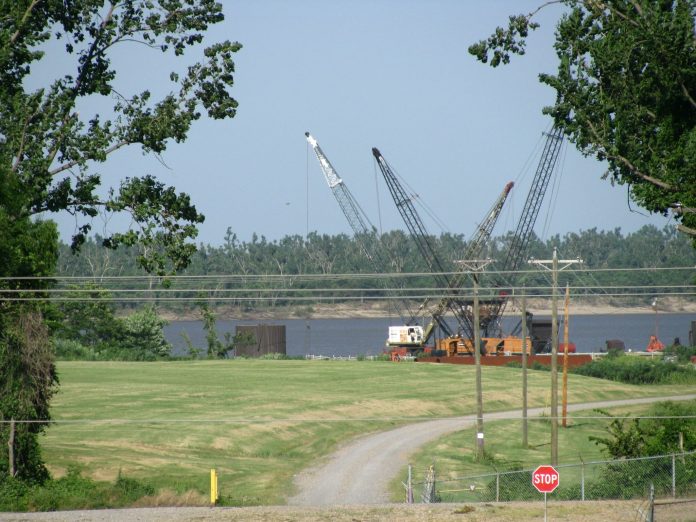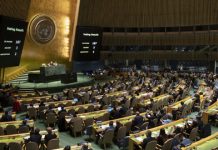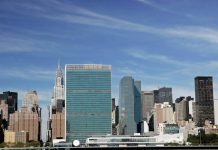Photo credit: DiasporaEngager (www.DiasporaEngager.com).
Port Sudan, 29 October – Good morning, I am glad to be able to speak with you this morning live from Port Sudan.
I arrived here yesterday on a four-day visit, into a deteriorating security situation with alarming reports of new atrocities. I have heard distressing detail from our teams on the ground of the conditions faced by ordinary Sudanese people whose lives have been thrown into turmoil by this conflict.
The situation here in Sudan is catastrophic. There is simply no other way to put it. Hunger, disease and sexual violence are rampant. For the people of Sudan, this is a living nightmare.
This is an underreported conflict situation, and we must pay it more attention. Millions are suffering, and there is now the serious possibility of the conflict igniting regional instability from the Sahel to the Horn of Africa to the Red Sea.
Yesterday, UN Secretary-General Antonio Guterres shone the spotlight on this suffering, calling it an ‘utter humanitarian catastrophe’.
Eighteen months have passed since fighting erupted between the Sudanese Armed Forces and the Rapid Support Forces. Outside forces are now ‘fueling the fire’ which is intensifying the conflict.
The suffering is growing by the day, with the Secretary-General reporting yesterday that almost 25 million people are now requiring assistance.
In recent days, we have heard utterly shocking reports of mass killings and sexual violence in villages in Al Jazirah State in the east of the country.
Throughout this year, Sudan has been world’s largest displacement crisis.
Today I can share that we will release new figures this week showing the displacement number has hit 11 million. That’s up 200,000 just since September.
Another 3.1 million people have traveled across borders to flee the fighting. In total, nearly 30 per cent of Sudan’s population has been displaced.
More than half of those displaced are women, and more than a quarter of them are children under the age of five. Think about that for a moment, that is a huge number of extremely vulnerable women and children on the move.
Many have been forced to flee repeatedly, with little to no access to shelter, much less to their livelihoods and the ability to get basic necessities.
The scale of this displacement – and the corresponding humanitarian needs – grows every day. Half the country’s population needs help. They don’t have access to shelter, to clean drinking water, to health care. Disease is spreading fast.
One in every two Sudanese is struggling to get even the minimal amount of food to survive. Famine conditions have taken hold in North Darfur, and millions struggle to feed themselves every day.
I saw some of that suffering yesterday, in a visit to the Arbaat dam area about 40 kilometers from Port Sudan.
After heavy rains in August, a spillway collapsed. The resulting flood killed at least 148 people and devastated homes, livestock, and infrastructure.
This devastation would be bad enough if it weren’t coming on top of a conflict that continues to rage and is becoming worse by the day – and one that has dramatically impacted the delivery of humanitarian assistance.
The safety of aid workers is often threatened. Access restrictions and bureaucratic impediments continue to be imposed.
People are dying because of this.
The parties to this conflict must do what they have pledged to do – and what international humanitarian law requires – protect civilians, and ensure safe, swift and unimpeded access to life-saving assistance.
What we also need, most desperately, is the help of the international community.
Sudan is easily the most neglected crisis in the world today. The collective failure to act means the devastation risks spilling over into neighboring countries.
At a conference in Paris this past April, the international community made generous pledges. But that appeal is only 52 per cent funded. And though IOM has been able to help nearly 3 million people since the war started, our part of the response plan is only 20% funded.
With the proper amount of funding, there is much we can do to alleviate the suffering, to help people get shelter and proper sanitation, to feed them and protect them.
But our progress will always be limited as long as war continues to be waged.
All wars are brutal, but the toll of this one is particularly horrifying, and the recent killings and appalling human rights violations in Aj Jazirah state were yet another example. Since last year, reports of rape, torture and ethnically motivated violence have been far too common. Indiscriminate attacks are killing civilians, including young children.
Some of the areas of most severe need remain cut off entirely, with no access to humanitarian aid.
The potential long-term impact of this catastrophic crisis is simply staggering. Education will be set back decades. The health and well-being of children will be stunted. Livelihoods will be permanently ruined. A generation will live in the shadow of trauma.
And the immense tragedy about it all is that a peaceful Sudan has the capacity to take care of itself. Its people are resilient, and their natural resources are immense.
So while I’m here today to raise awareness of the needs and to highlight the cost of this displacement crisis, what IOM really wants – what every person in the world should want – is for the guns in Sudan to fall silent.
The humanitarian response must be scaled up, and we call on the donor community to support this effort.
I echo the Secretary General in calling for:
An end to hostilities;
Protection for civilians;
and access for humanitarian agencies so that aid can flow.
We will not allow Sudan to be forgotten. But its people need peace, now.
***
For more information please contact:
In Port Sudan: Lisa George, lgeorge@iom.int
In Cairo: Joe Lowry, jlowry@iom.int
In Geneva: Kennedy Okoth, kokoth@iom.int
Source of original article: International Organization for Migration (www.iom.int).
The content of this article does not necessarily reflect the views or opinion of Global Diaspora News (www.GlobalDiasporaNews.com).
To submit your press release: (https://www.GlobalDiasporaNews.com/pr).
To advertise on Global Diaspora News: (www.GlobalDiasporaNews.com/ads).
Sign up to Global Diaspora News newsletter (https://www.GlobalDiasporaNews.com/newsletter/) to start receiving updates and opportunities directly in your email inbox for free.





























